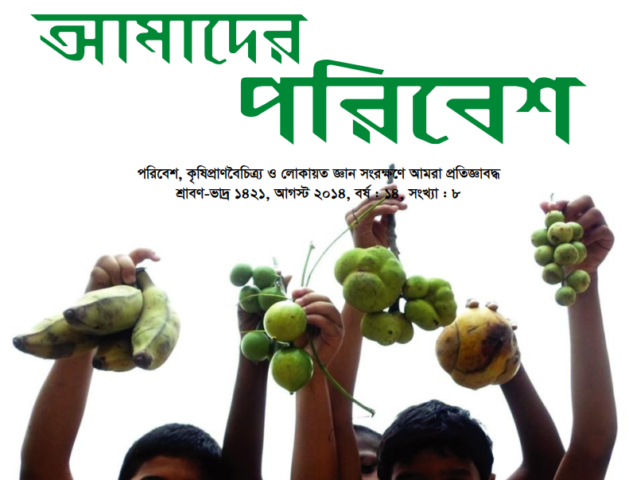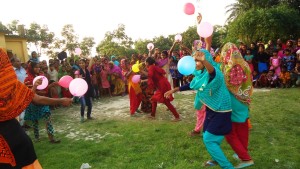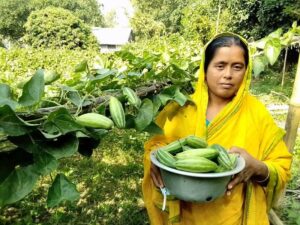By Rubina Parveen from Satkhira
Anita Rani Mondal (41) lives at Betangi village in Shyamnagar upazila of Satkhira district-south-western coastal areas of Bangladesh. She spends several hours a day in her homestead where she has been cultivating a variety of vegetables round the year. Anita, wife of a daily-wage farm laborer and a mother of two daughters started growing vegetables in her court yard seven years ago after her husband’s income declined. “Saline water intrusion after cyclone, unplanned expansion of shrimp farming using saline water and water logging forced many farming families to abandon agricultural production. It was hard for daily-wage laborers like my husband to find regular work,” she said. She went on saying, “I am now supporting my family and my children’s education by selling vegetables.”
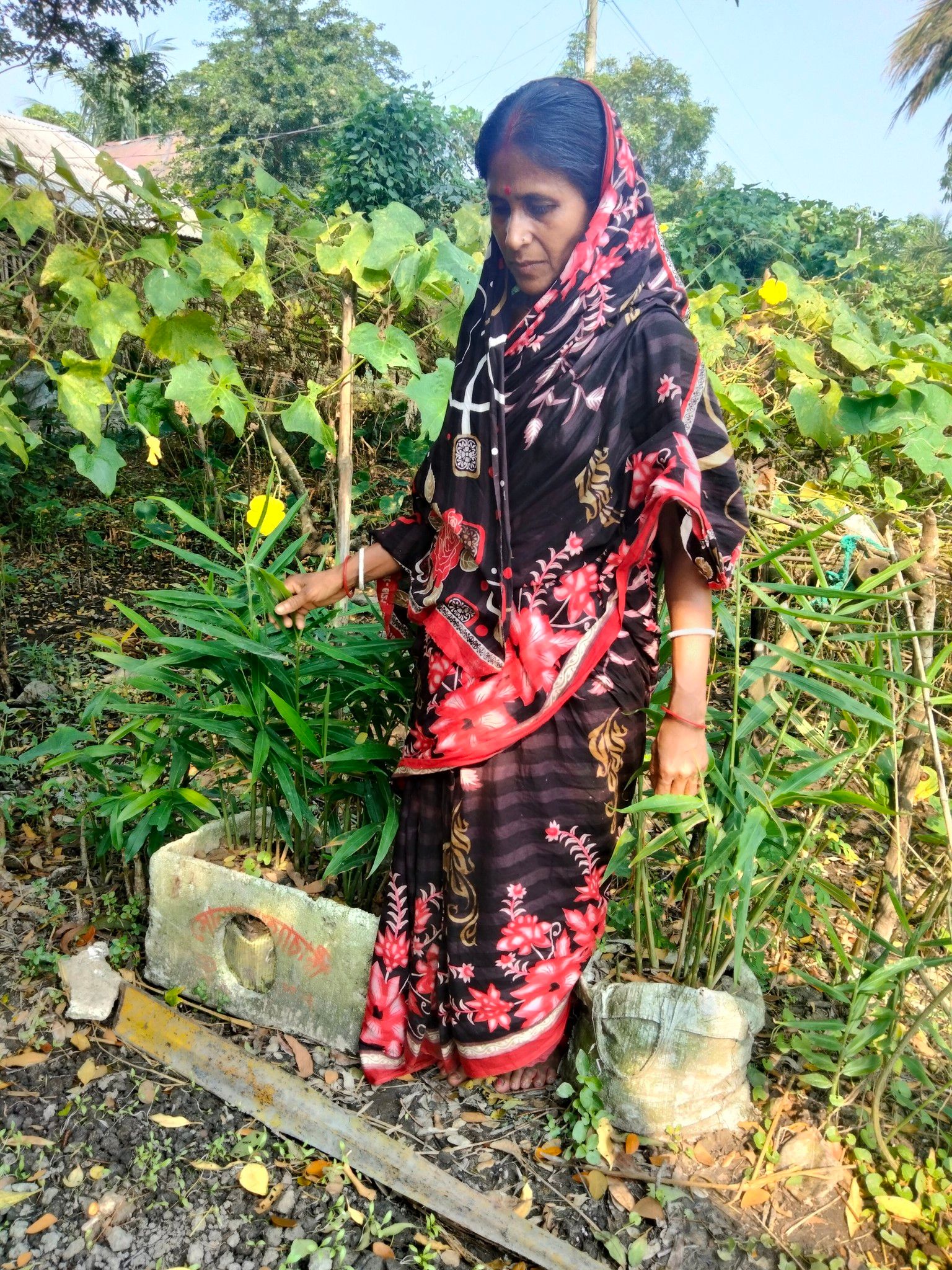
Anita’s case is unique in the region. She realized when saline water evaporates; it leaves excess salt in the soil, increasing the salt concentration every day. To avoid salinity contamination she used to sow the seeds in the gunny bag, concrete pots etc. Now she has been using cork boxes to grow vegetable as gunny bags are not as durable as cork boxes. Cork boxes are available because there are many shrimp farms-which use it for carrying shrimp fry from market to farms. Anita found difficulties due to regular natural disasters like heavy rain inundated her court yard that made gunny bags unusable. She come into a new idea and developed the new strategy using cork boxes instead of gunny bags for growing vegetable round the year even her courtyard inundated.
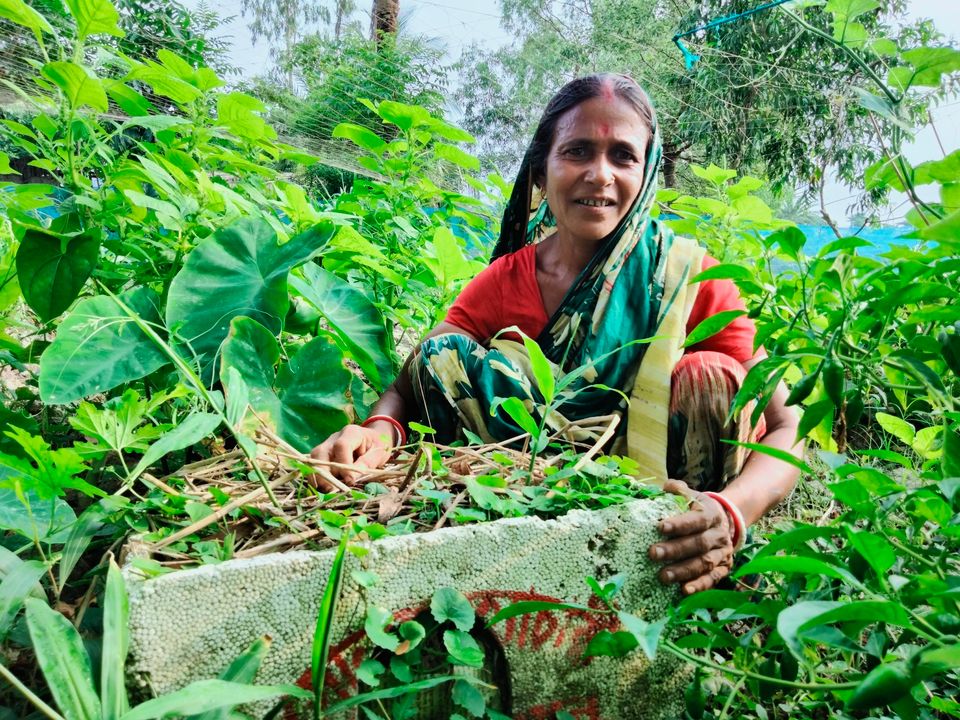
People in the south-western coastal regions have developed a number of innovations-bringing together local knowledge, resources and scientific know-how to improve livelihoods. BARCIK with the support from Diakonia (Sweden) and Misereor (Germany) has been facilitating the community who are open to innovative ideas and have enthusiasm to sort out problems with local solutions.
Re-written by ABM Touhidul Alam

